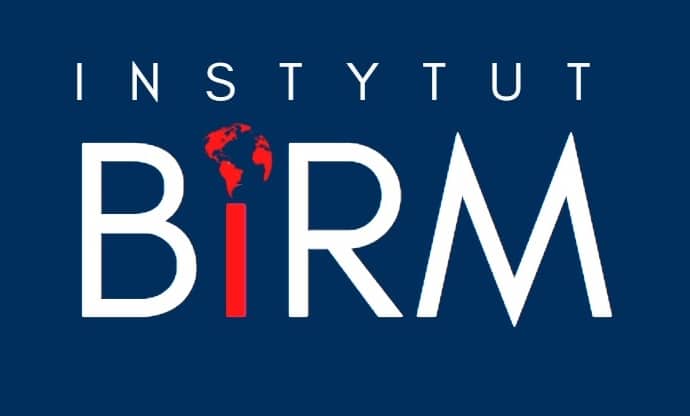Tightening relations between Ukraine and Three Seas Initiative by previous multilateral cooperation formats in Central and Eastern Europe
Piotr Wójcik2022-10-27T09:02:51+02:00Cooperation Ukraine – Three Seas Initiative – why is it so crucial?
Deepening relations between Ukraine and Three Seas Initiative (TSI) brings economic benefits both for the Ukrainian state and TSI countries. Tightening this cooperaion will ensure increased and efficient freight transport in the Central European region. Constructing transport routes connecting Three Seas region with Ukraine will also increase the position of TSI countries and Ukraine, within transport connections running through Central and Eastern Europe (CEE) to other regions, such as: Scandinavia, Middle and Far East. Moreover, the intensification ukrainian-TSI relations – in the energy aspect – will contribute to bigger diversification of energy supply sources in CEE and reducing dependance on Russia in this dimension. By this time, the development of Ukraine-Three Seas relationship has been realised in several multilateral initiatives, such as: some TSI projects, the Lublin Triangle and the Associated Trio.
Previous Ukraine – TSI cooperation
Ukrainian decision-makers were absent during previous TSI summits (which were organised in 2016-2021) so far – both during meetings of political leaders and business ones. The absence of Ukrainian side at former summits was the result of small interest of Ukraine and Three Seas in tightening this cooperation, which was particularly noticeable in 2016-2017. For the first time, before the first summit in Dubrovnik, the Ukrainian side refuse the invitation to this event. In addtition, Ukraine was not invited at Three Seas Summit in Warsaw in 2017, which disappointed Kyiv and influenced on increasing Ukraine’s reluctance to this regional form of cooperation.
Nevertheless, there is need to notice interest of Ukraine and Three Seas Initiative on developing mutual relations in the next years. In 2021, Ukraine, Georgia and Moldova appointed new form of cooperation – the Associated Trio (it is at the stage of forming currently, even though this initiative has support of European Union (EU) and some CEE countries, including Lithuania and Poland). In TSI context, Ukrainian-Georgian-Moldovian format aims to modernise economies of the trilogue countries, which is sure to simplify the integration of Trio members with EU in the economic aspect. Moreover, there was the first 3Seas Local Government Congress (which makes for tightening cooperation between local governments of TSI countries and other ones in CEE) in the same year, which the ambassador of Ukraine Andrii Deshchytsia took part in – in a panel focused on diplomacy of TSI towards partner and neighbouring countries of this Initiative.
An especially large increase in interest in tightening relations Ukraine-Three Seas Initiative is noticeable after Russia’s invasion of Ukraine at the end of February 2022. Since then, there are more and more discussions about the development relations between Ukraine and Initiative. Debates on this issue are taking place within same ways of communication, including also sherpa format (meetings organised by national coordinators of TSI with ukrainian political decision-makers). The aim of these discussions is to coordinate common activities related to intensifying mutual relations in the future. The interest in tightening these relations was also visible during the second 3Seas Local Government Congress in June in the same year. There were five discussion panels about Ukraine-Three Seas cooperation (challendges, food issues, energy security, social resources and cooperation within the network of regions) during this edition of the event. Apart from Deshchytsia, also chairmen of several regional councils and Minister of Infrastructure of Ukraine participated in this congress.
Apart from taking part in some Three Seas events, Ukraine is also involved in the realisation of some TSI priority infrastructure investments, such as: diversification of gas supply sources through the Baltic Pipe and expansion of the regional gas infrastructure and constructing transport corridors, such as: Via Carpatia and Viking Train. Although the implementation of the first project will be completed in thenear future and it is rather probable that gas will be transported via new pipeline from Norway, via Poland and to Ukraine, the cooperation on other mutual projects is not very intense and it restricts to declarations. In the case of Via Carpatia, Ukraine joined the realisation of this investment in 2016. However, there is missing of further, agreed activities of the construction of this route between Ukraine and TSI area. As for Viking Train, in spite of the functioning of this route between Lithuania and Ukraine, there are no additional section of this road in Romania, Bulgaria and Moldova (which also participate in the project). There has been prepared no schedule for inplementation of these sections so far, which proves of low involvement of these countries in Viking Train.
The Lublin Triangle
The realisation of this format in the context of Three Seas Initiative, aims to promote the cooperation Ukrainian state with TSI, particularly through meetings of the most important decision-makers (from Poland, Lithuania and Ukraine which are members of this association). The promotion of common activities, which are related to Ukraine-Three Seas cooperation, focuses on issues such as: energy security, the development of communication and digitalisation of international transport connections. Although the Lublin Triangle (L3) was created in the middle of 2020, there is need to draw attention to the noticeable evolution of this form of cooperation. Its development is visible on the example of the specific aims of the partnership and a large number of meetings of officials of the same rank from member countries. The intensity of common discussions within the L3 is perceptible especially since the end of 2021 (when was the concentration of russian army close to the border of Ukrainian state and later after Russian invasion on Ukraine at the beginning of 2022), within which member countries were represented by the politicians of the highest level, at presidential one. During the previous meetings within this trilogue, there were formed common positions on many issues. However, they mainly concerned security issues (opposition to the Russian invasion and support for Ukraine by Poland and Lithuania, in Ukrainian efforts to join the atlantic structures). There was a lack of specific actions for the development of transport, energy and digital infrastructure which connect Ukraine with other countries in CEE and could be part of the development of investments within TSI.
Conclusions and recommendations
In recent years, there was an increase of developing Ukraine-Three Seas cooperation on both sides on this partnership. The bigger willingness of this cooperation is mainly related to the intensified actions led by Russia in Ukraine in recent months, which brought together countries of the region in security issues. The increased interest of this partnership is visible on the example of intensified meetings of high-level politicians from countries in CEE in recent months, within existing formats (the Three Seas Initiative and the Lublin Triangle) and formation of common positions in many areas during them. It is also worth paying attention to initiating talks about tightening cooperation between Ukraine and TSI, within shepra format and discussion panels fitted to the realisation of Three Seas Initiative. Moreover, the TSI countries and Ukraine notice potential economic benefits which can bring them the development of common infrastructure projects, such as expansion of the regional gas network, Via Carpatia and Viking Train.
In spite of numerous initiatives related to the development of Ukraine-Three Seas relations recently, there has not been worked out the specific policy of maintaining and intensifying these cooperation. On the example of activities listed before, there is noticeable large activity of Poland and Baltic countries in tightening relations between Ukraine and Three Seas Initiative.
Other member of the Initiative should be engaged to a bigger extent in developing Ukraine-TSI relations, especially countries situated in a close neighbourhood, such as Romania and Bulgaria. In this aspect, it is worth persuading, inter alia, these two countries to build joint connection, including Via Carpatia and Viking Train routes, which would bring measurable economic benefits to all sides involved in their realisation. In addition, there should be use currently existing form of cooperation, such as the Lublin Triangle and the Associated Trio (and potential new regional formats in various configurations) to develop routes connecting Ukraine with TSI countries.


Dodaj komentarz